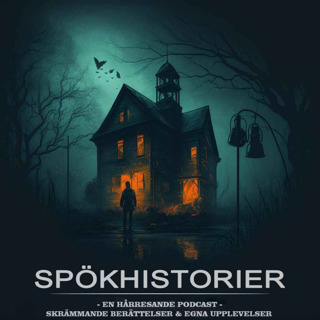
Spring Preview: A Few Books We're Excited For
Every season brings its share of books to look forward to, and this spring is no different. Host Gilbert Cruz is joined by Book Review editor Joumana Khatib to talk about a dozen or so titles that sound interesting in the months ahead.Books discussed on this episode:"Dream Count," by Chimamanda Ngozi Adichie"Sunrise on the Reaping," by Suzanne Collins"The Buffalo Hunter Hunter," by Stephen Graham Jones"Medicine River: A Story of Survival and the Legacy of Indian Boarding Schools," by Mary Annette Pember"Great Big Beautiful Life," by Emily Henry"John & Paul: A Love Story in Songs," by Ian Leslie"Yoko: A Biography," by David Sheff"Searches," by Vauhini Vara"Strangers in the Land: Exclusion, Belonging, and the Epic Story of the Chinese in America," by Michael Luo"Rabbit Moon," by Jennifer Haigh"Mark Twain," by Ron Chernow"Authority," by Andrea Long Chu"Spent," by Alison Bechdel"Fish Tales," by Nettie Jones Unlock full access to New York Times podcasts and explore everything from politics to pop culture. Subscribe today at nytimes.com/podcasts or on Apple Podcasts and Spotify.
7 Mars 31min

Book Club: Let's Talk About "Orbital," by Samantha Harvey
Samantha Harvey’s novel “Orbital,” which won the Booker Prize last year, has a tight, poetic frame: We follow one day in the lives of six people working on a space station above Earth, orbiting the planet 16 times every 24 hours. But this is not a saga of adventure or exploration. It’s a quiet meditation on what it means to be human, prompted by a series of personal reckonings each character faces while floating 250 miles above home.This week on the Book Review Book Club, MJ Franklin talks about “Orbital” with fellow Book Review editors Joumana Khatib and Jennifer Harlan. Unlock full access to New York Times podcasts and explore everything from politics to pop culture. Subscribe today at nytimes.com/podcasts or on Apple Podcasts and Spotify.
28 Feb 41min

Celebrating 100 Years of Edward Gorey
You’re familiar with Edward Gorey, whether you know it or not. The prolific author and illustrator, who was born 100 years ago this week, was ubiquitous for a time in the 1970s and 1980s, and his elaborate black-and-white line drawings — often depicting delightfully grim neo-Victorian themes and settings — graced everything from book jackets to the opening credits of the PBS show “Mystery!” to his own eccentric storybooks like “The Gashlycrumb Tinies,” in which young children come to unfortunate but spectacular ends.On this week’s episode, the Book Review’s Sadie Stein joins Gilbert Cruz for a celebration of all things Gorey.“He was so incredibly prolific,” Stein says. “He was Joyce Carol Oates-like in his output. And it’s amazing when you look at the work because the line drawings, as you mentioned, are so intricate. It looks almost like pointillism sometimes, like it would have taken hundreds of hours. But he was either preternaturally disciplined or incredibly fast, and each one that I’ve ever seen at least is beautiful. And complete in a way.” Unlock full access to New York Times podcasts and explore everything from politics to pop culture. Subscribe today at nytimes.com/podcasts or on Apple Podcasts and Spotify.
21 Feb 35min

Inside the Making of ‘Wicked’
One day, several decades ago, the writer Winnie Holzman was shopping in a Manhattan bookstore where a particular cover caught her eye. It showed a woman with a green face, a black hat pulled down over her eyes. The book was “Wicked” by Gregory Maguire, a retelling of L. Frank Baum’s “Oz” stories from the perspective of the Wicked Witch of the West. “When I turned it over and read the little précis on the back, it blew my mind,” Holzman said. “I thought it was such a brilliant premise.” The book ended up on Holzman’s bookshelf, with its enigmatic cover facing out.Years later, the composer Stephen Schwartz contacted Holzman to ask if she’d be interested in adapting Maguire’s book for the stage. The musical they wrote together opened in 2003, and it is now one of the most successful shows in Broadway history. The producers started talking about a movie adaptation, but Holzman was cautious: “We had to really kind of clear our minds and kind of reconceive the whole story.”The film version of “Wicked” opened in 2024, starring Cynthia Erivo and Ariana Grande, and with a screenplay by Holzman and Dana Fox. It is one of the highest-grossing movies of the year and is nominated for 10 Academy Awards, including Best Picture.Winnie Holzman joins Gilbert Cruz, the editor of the Book Review, to discuss the benefits and drawbacks of adapting your own adaptation. Unlock full access to New York Times podcasts and explore everything from politics to pop culture. Subscribe today at nytimes.com/podcasts or on Apple Podcasts and Spotify.
19 Feb 26min

Adapting the Twists and Turns of ‘Conclave’
The screenwriter Peter Straughan has become adept at taking well known — and beloved — books and adapting them for the big and small screens. He was first nominated for an Oscar for his screenplay of the 2011 film “Tinker Tailor Soldier Spy,” based on the classic John le Carré spy novel, and then adapted Hilary Mantel’s “Wolf Hall” trilogy into an award-winning season of television, with an adaptation of the third novel coming out soon. Now he has been nominated for a second Oscar: for his screenplay for “Conclave,” based on Robert Harris’s political thriller set in the secret world of a papal election.“It’s almost like mosaic work,” Straughan tells Gilbert Cruz, the editor of The New York Times Book Review, about adapting books. “You have all these pieces; sometimes they’re going to be laid out in a very similar order to the book, sometimes a completely different order. Sometimes you’re going to deconstruct and rebuild completely.”In the third episode of our special series devoted to Oscar-nominated films adapted from books, Cruz talks with Straughan about his process of translating a book to the screen, and about the moments in ‘‘Conclave” that he found most exciting to adapt.Produced by Tina Antolini and Alex BarronEdited by Wendy DorrEngineered by Daniel RamirezOriginal Music by Elisheba IttoopHosted by Gilbert Cruz Unlock full access to New York Times podcasts and explore everything from politics to pop culture. Subscribe today at nytimes.com/podcasts or on Apple Podcasts and Spotify.
14 Feb 23min

Is Bob Dylan Still a ‘Complete Unknown’?
Elijah Wald’s 2015 book, “Dylan Goes Electric! Newport, Seeger, Dylan and the Night That Split the Sixties,” traces the events that led up to Bob Dylan’s memorable performance at the 1965 Newport Folk Festival. The book is about Dylan, but also about the folk movement, youth culture, politics and the record business. For the writer and director James Mangold, Wald’s work provided an opportunity to tell an unusual story about the musician.“You could structure a screenplay along the lines of what Peter Shaffer did with “Amadeus,’” Mangold told the Book Review editor Gilbert Cruz. “I don’t really know what I learned about Mozart watching “Amadeus.” But I do know that I learned a lot about how we mortals feel about people with immense talent.”Mangold’s film “A Complete Unknown” is a chronicle of Dylan’s early years on the New York folk scene, and it avoids easy explanations for the musician’s genius and success. “What if the thing we don’t understand, we just don’t want to understand,” said Mangold, “which is that he’s actually different? That he’s just a different kind of person than you or I?”In the second episode of our special series devoted to Oscar-nominated films adapted from books, Cruz talks with Mangold about making a film centered on one of music’s most enigmatic figures. Unlock full access to New York Times podcasts and explore everything from politics to pop culture. Subscribe today at nytimes.com/podcasts or on Apple Podcasts and Spotify.
11 Feb 22min

How ‘Nickel Boys’ Became One of the Year’s Most Visually Striking Films
When the filmmaker and photographer RaMell Ross first read “The Nickel Boys,” Colson Whitehead’s Pulitzer Prize-winning novel about two Black boys in a dangerous reform school in the 1960s, he couldn’t help but put himself in the shoes of its protagonists, Elwood and Turner.In his film adaptation of the book, Ross does that to the audience: You see what the characters see, because it’s filmed from the main character’s point of view. “I wondered,” Ross said, “how do you explicitly film from the perspective of a Black person?”It was an experiment that has paid off in critical acclaim. “Nickel Boys” has been nominated for two Academy Awards: best adapted screenplay and best picture.In the first episode of our special series devoted to Oscar-nominated films adapted from books, host Gilbert Cruz talks with Ross about why he made the film this particular way. Produced by Tina Antolini and Alex BarronWith Kate LoPrestiEdited by Wendy DorrEngineered by Sophia LanmanOriginal music by Elisheba IttoopHosted by Gilbert Cruz Unlock full access to New York Times podcasts and explore everything from politics to pop culture. Subscribe today at nytimes.com/podcasts or on Apple Podcasts and Spotify.
7 Feb 22min

Book Club: Let’s Talk About Alan Hollinghurst’s ‘Our Evenings’
The novel “Our Evenings,” by Alan Hollinghurst, follows a gay English Burmese actor from childhood into old age as he confronts confusing relationships, his emerging sexuality, racism and England’s changing political climate in the late 20th and early 21st century. It’s the story of a life — beautifully related by a literary master whose 2004 novel “The Line of Beauty” won the Booker Prize and was named to the Book Review’s 100 Best Books of the 21st Century.Reviewing “Our Evenings” for us last year, Hamilton Cain wrote that the book “is that rare bird: a muscular work of ideas and an engrossing tale of one man’s personal odyssey as he grows up, framed in exquisite language, surrounding us like a Wall of Sound.”You can join our book club discussion in the comments here.We would love to hear your thoughts about this episode, and about the Book Review’s podcast in general. You can send them to books@nytimes.com. Unlock full access to New York Times podcasts and explore everything from politics to pop culture. Subscribe today at nytimes.com/podcasts or on Apple Podcasts and Spotify.
31 Jan 47min





















